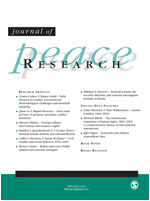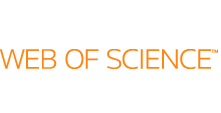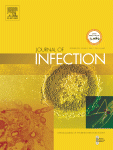
A citation index is a kind of bibliographic index, an index of citations between publications, allowing the user to easily establish which later documents cite which earlier documents. A form of citation index is first found in 12th-century Hebrew religious literature. Legal citation indexes are found in the 18th century and were made popular by citators such as Shepard's Citations (1873). In 1961, Eugene Garfield's Institute for Scientific Information (ISI) introduced the first citation index for papers published in academic journals, first the Science Citation Index (SCI), and later the Social Sciences Citation Index (SSCI) and the Arts and Humanities Citation Index (AHCI). American Chemical Society converted its printed Chemical Abstract Service into internet-accessible SciFinder in 2008. The first automated citation indexing was done by CiteSeer in 1997 and was patented. Other sources for such data include Google Scholar, Microsoft Academic, Elsevier's Scopus, and the National Institutes of Health's iCite.

Monthly Notices of the Royal Astronomical Society (MNRAS) is a peer-reviewed scientific journal in astronomy, astrophysics and related fields. It publishes original research in two formats: papers and letters. MNRAS publishes more articles per year than any other astronomy journal.
Science & Society: A Journal of Marxist Thought and Analysis is a quarterly peer-reviewed academic journal of Marxist scholarship. It covers economics, philosophy of science, historiography, women's studies, literature, the arts, and other social science disciplines from a Marxist point of view. As well as covering social and political theory, it includes first-order historical research. The journal was established in 1936 and is published by Guilford Publications. The editor-in-chief is Julio Huato.

The Journal of Peace Research is a bimonthly peer-reviewed academic journal that publishes scholarly articles and book reviews in the fields of peace and conflict studies, conflict resolution, and international security. It was established by Johan Galtung in 1964 and emerged as a leading journal in the field of peace and conflict studies and International Relations under the editorship of Nils Petter Gleditsch. The current editors-in-chief are Gudrun Østby and Sebastian Schutte.

Biology Letters is a peer-reviewed scientific journal published by the Royal Society, established in 2005. It focuses on the rapid publication of short research articles, reviews, and opinion pieces across the biological sciences. The editor-in-chief is David Beerling FRS.

Nature Medicine is a monthly peer-reviewed medical journal published by Nature Portfolio covering all aspects of medicine. It was established in 1995. The journal seeks to publish research papers that "demonstrate novel insight into disease processes, with direct evidence of the physiological relevance of the results". As with other Nature journals, there is no external editorial board, with editorial decisions being made by an in-house team, although peer review by external expert referees forms a part of the review process. The editor-in-chief is João Monteiro.

Infection and Immunity is a peer-reviewed medical journal published by the American Society for Microbiology. It focuses on interactions between bacterial, fungal, or parasitic pathogens and their hosts. Areas covered include molecular pathogenesis, cellular microbiology, bacterial infection, host responses and inflammation, fungal and parasitic infections, microbial immunity and vaccines, and molecular genomics. The journal publishes primary research articles, editorials, commentaries, minireviews, and a spotlight report highlighting articles of particular interest selected by the editors. Articles are freely accessible after 6 months. Through its "Global Outreach Program," free online access is available to qualified microbiologists in eligible developing countries.

The Web of Science is a paid-access platform that provides access to multiple databases that provide reference and citation data from academic journals, conference proceedings, and other documents in various academic disciplines.

The European Journal of Combinatorics is an international peer-reviewed scientific journal that specializes in combinatorics. The journal primarily publishes papers dealing with mathematical structures within combinatorics and/or establishing direct links between combinatorics and the theories of computing. The journal includes full-length research papers, short notes, and research problems on several topics.
MDPI is a publisher of open-access scientific journals. It publishes over 390 peer-reviewed, open access journals. MDPI is among the largest publishers in the world in terms of journal article output, and is the largest publisher of open access articles.
The International Journal of Environmental Research and Public Health is a peer-reviewed open access scientific journal that was established in 2004 and is published by MDPI. The editor-in-chief is Paul B. Tchounwou. The journal covers all aspects of environmental health sciences and public health.

The Journal of Infection is a monthly peer-reviewed medical journal in the field of infectious disease, covering microbiology, epidemiology and clinical infectious disease medicine. Established in 1979, the journal was initially published quarterly by Academic Press. The first editor was Hillas Smith. The Journal of Infection is the official publication of the British Infection Association. Since 2006, the editor-in-chief has been Robert C. Read, an infectious disease physician and Chair of Infectious Diseases at the University of Southampton, and the publisher is Elsevier.

The Journal of the Operational Research Society is a monthly peer-reviewed academic journal covering operations research. It is an official journal of the Operational Research Society and publishes full length case-oriented papers, full length theoretical papers, technical notes, discussions (viewpoints) and book reviews. It was established in 1950 as the Operational Research Quarterly. It was published four times a year until 1978 when it became a monthly publication and the name was changed to Journal of the Operational Research Society. In 2024, the journal celebrated its 75th anniversary.
Frontiers Media SA is a publisher of peer-reviewed, open access, scientific journals currently active in science, technology, and medicine. It was founded in 2007 by Kamila and Henry Markram. Frontiers is based in Lausanne, Switzerland, with offices in the United Kingdom, Spain, and China. In 2022, Frontiers employed more than 1,400 people, across 14 countries. All Frontiers journals are published under a Creative Commons Attribution License.

Theory & Society is a bimonthly peer-reviewed academic journal covering theoretical analyses of social processes and phenomena. It was established by Alvin Gouldner in 1974. It is published by Springer Science+Business Media and the editors-in-chief are Kevin McCaffree and Jonathan H. Turner. According to the Journal Citation Reports, the journal has a 2022 impact factor of 2.9. The editorial structure of the journal was overhauled by Springer Nature in December 2023.
Aging Cell is a peer-reviewed open access scientific journal and an official journal of the Anatomical Society. It is published on their behalf by John Wiley & Sons. It was established in 2002. Its editor-in-chief is Monty Montano. The journal covers research on all aspects of aging, publishing research articles, reviews, minireviews, and commentaries.
The Indian Journal of Gender Studies is a triannual peer-reviewed academic journal with a focus on a holistic understanding of gender. The editors-in-chief are Malavika Karlekar and Leela Kasturi. The journal is published thrice a year by Sage on behalf of the Indian Council of Social Science Research.
The Journal of Health Management is a quarterly peer-reviewed academic journal covering health policy and health management in developing countries. It is published by Sage Publishing on behalf of the Indian Institute of Health Management Research and the editor-in-chief is S.D. Gupta.
The Journal of Developing Societies is a refereed international journal on development and social change not only in 'developing' countries but also the 'developed' societies of the world. It provides an interdisciplinary forum for the publication of theoretical perspectives, research findings, case studies, policy analyses and normative critiques on the issues, problems and policies of both mainstream and alternative approaches to development.
Clinical Microbiology and Infection is a monthly peer-reviewed medical journal covering management of patients and the prevention of infectious diseases including research in clinical microbiology, infectious diseases, bacteriology, mycology, virology, and parasitology, including immunology and epidemiology as related to these fields. The journal also publishes editorials, commentaries, and reviews, as well as guidelines originating from European Society of Clinical Microbiology and Infectious Diseases study groups.










